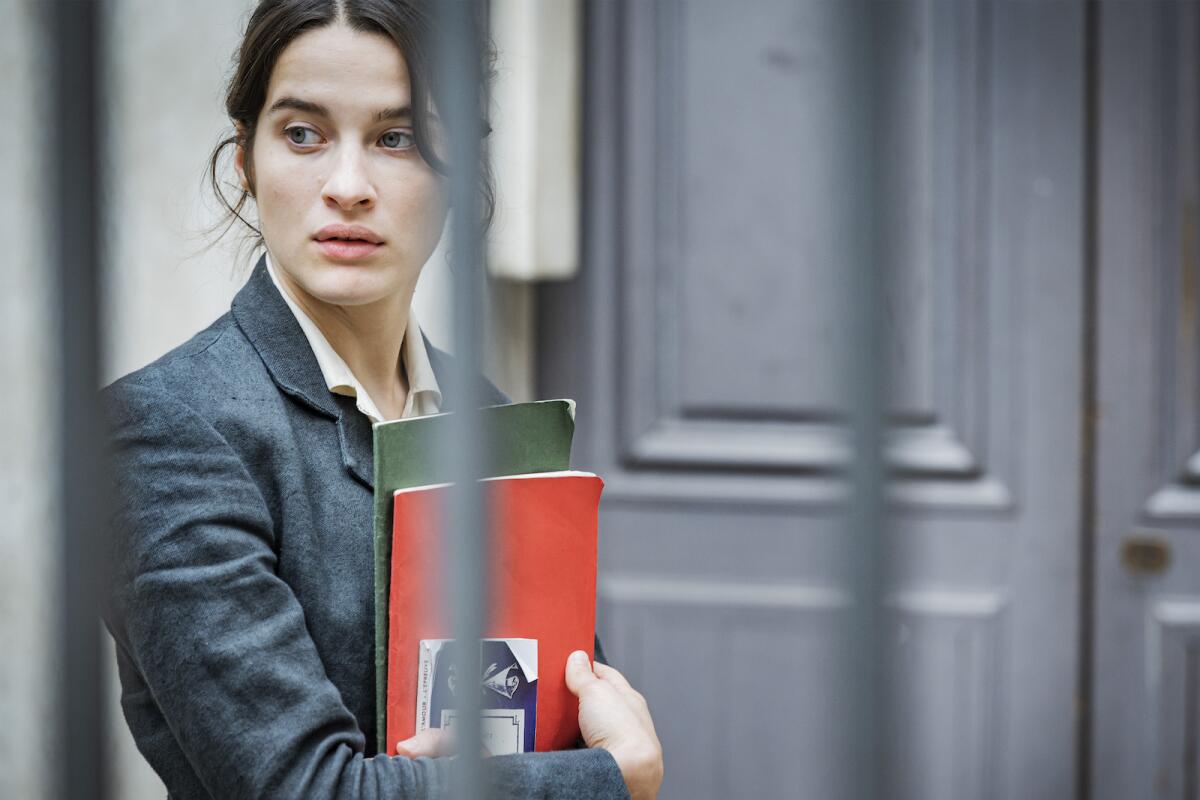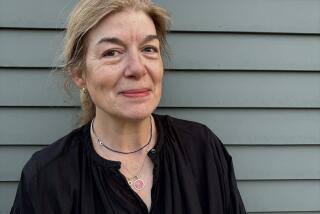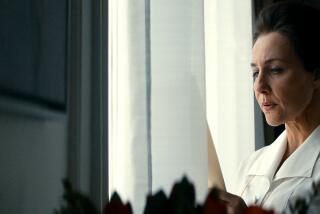Review: As the world grows darker in 1942 Paris, ‘A Radiant Girl’ burns brighter

- Share via
Working behind the camera for the first time, French actress Sandrine Kiberlain filters familiar subject matter through a unique lens, resulting in the simultaneously ominous and vibrant allegorical coming-of-age story that is “A Radiant Girl.”
A thoughtfully composed portrait of youthful idealism under the lengthening shadow of Nazi-occupied France, the film is in no rush to establish the usual period context — titles revealing place and time, newspaper headlines, radio broadcasts — that tend to go with the territory.
For your safety
The Times is committed to reviewing theatrical film releases during the COVID-19 pandemic. Because moviegoing carries risks during this time, we remind readers to follow health and safety guidelines as outlined by the CDC and local health officials.
Instead, when we meet aspiring actress Irène (a delightfully effervescent Rebecca Marder) rehearsing a scene with fellow theater students, the era in question is deliberately undefined.
It isn’t until Irène returns to the comfortable Paris appartement she shares with her by-the-book father (André Marcon), free-spirited grandmother (Françoise Widhoff) and older brother (Anthony Bajon) that the writer-director proceeds to dispense the economically measured exposition.
We gradually learn that Irène is given to fainting spells, her family is Jewish, that it’s the summer of 1942 and that her obedient dad tries to convince himself that they need not meet the same fate as their Polish brethren.
“We’re French,” reasons Marcon’s André. “It’s different. We just need to follow the rules.”
For her part, Irène is laser-focused on more pressing matters, like nailing the audition that will get her into the renowned Conservatoire, and her complicated love life.
Just when she grapples with the best way to extricate herself from the smothering attentiveness of Gilbert (Jean Chevalier), she becomes smitten with Jacques (Cyril Metzger), her doctor’s handsome assistant, deliberately failing her eye exam in order to book a return appointment for a pair of glasses.
Calling upon “The Diary of Anne Frank” and “The Journal of Hélène Berr” as well as recollections shared by her own family to process the events of the period through the eyes of a young woman, Kiberlain infuses Irène’s story with a more contemporary immediacy, assisted by cinematographer Guillaume Schiffman’s energetic camerawork.
While the costume design shares a similar timelessness (Irène’s clothing choices could easily be taken for the vintage chic of a modern-day theater student), the wide-ranging musical selections, including Tom Waits’ “All the World Is Green,” prove more problematic.
When Irène and her grandmother dance to “Part Time Love,” a recent song by British Nigerian soul singer Jacob Banks, the blatantly anachronistic result can’t help but pull the viewer out of the tender moment.
But there are no false moves in Marder’s truly radiant lead performance. An irrepressible bundle of youthful exuberance, Irène’s propulsive, constant motion may be in keeping with that of an average 19-year-old, but there’s a palpable urgency lurking just beneath that self-possessed surface.
She might at first appear to be more preoccupied with her own daily drama than what is going on in the world outside her front door, but she proves to be far from oblivious. It’s no wonder her Irène finds comfort in looking at things through the strong prescription lenses of her unnecessary eyeglasses. They help blur the all-too-vivid reality of what lies, jarringly so, just beyond her reach.
‘A Radiant Girl’
In French with English subtitles
Not rated
Running Time: 1 hour, 33 minutes
Playing: Laemmle Monica, Santa Monica
More to Read
Only good movies
Get the Indie Focus newsletter, Mark Olsen's weekly guide to the world of cinema.
You may occasionally receive promotional content from the Los Angeles Times.







